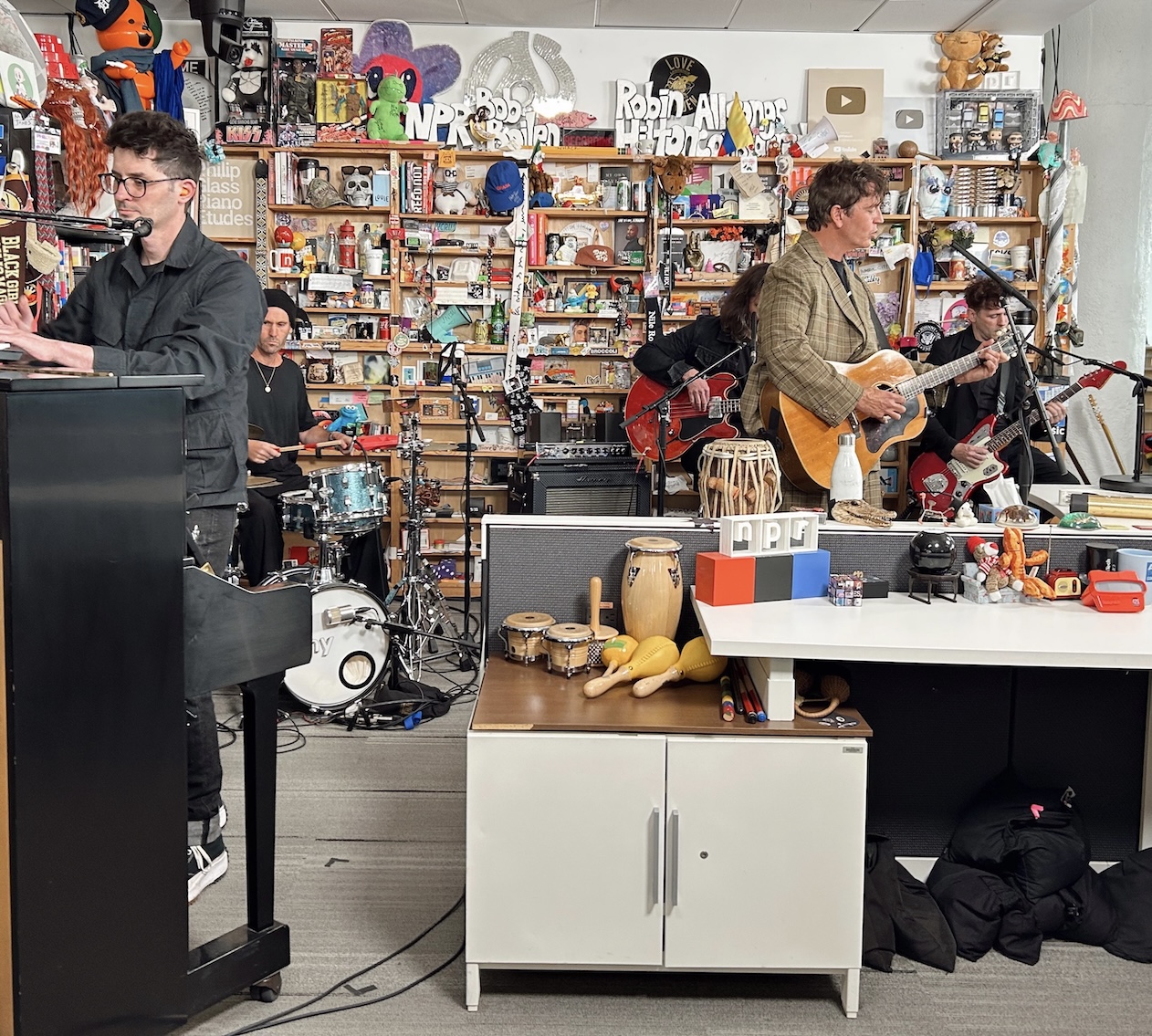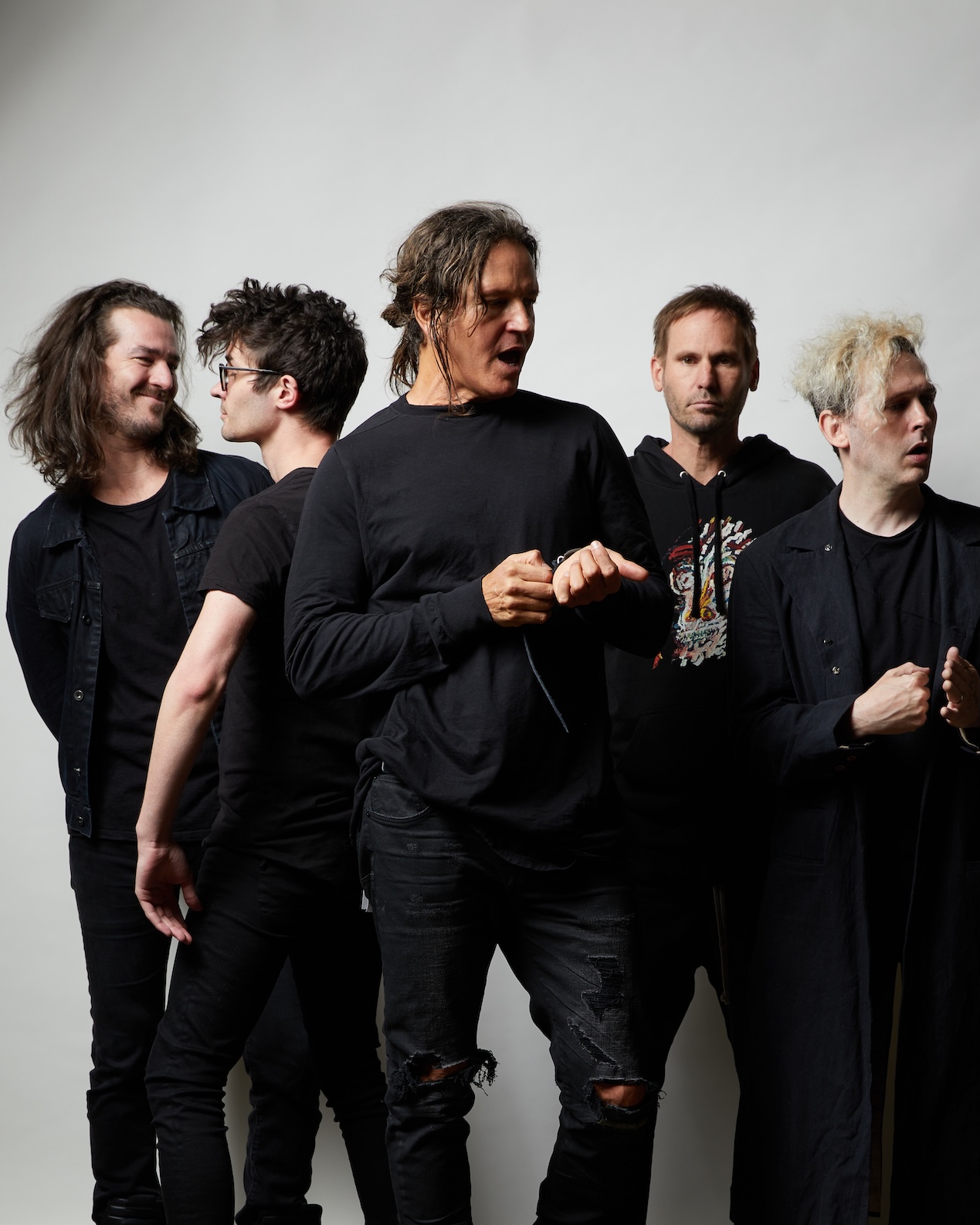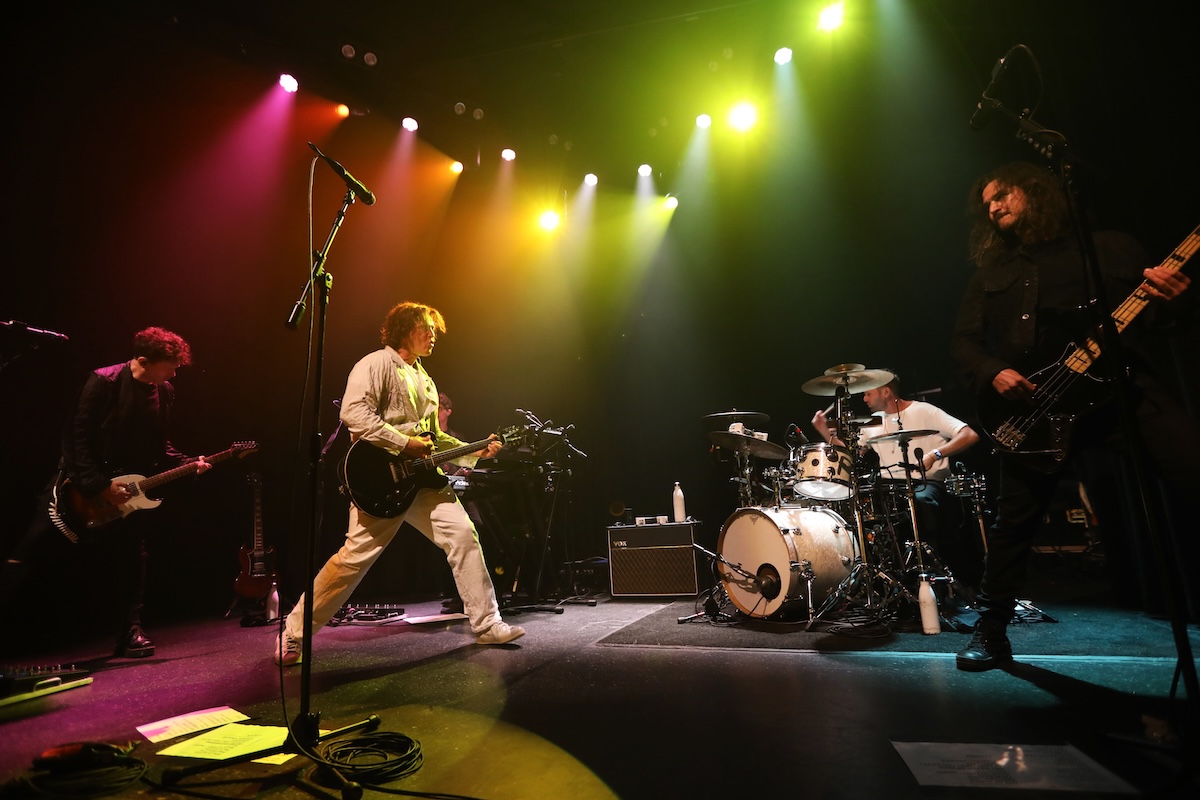Stephan Jenkins has a cold.
More from Spin:
- Kelp Me If You Can: Talking Reef Reforestation with Stephan Jenkins
- The ‘Cult’ of Third Eye Blind: Out of the Vein Turns 20
- 5 Albums I Can’t Live Without: Stephan Jenkins of Third Eye Blind
Well, he had a cold. He feels better today. It was more like the flu, he says, and it coincided with Third Eye Blind’s appearance on NPR’s Tiny Desk Concert series.
You couldn’t tell, though. Jenkins sounded like himself. He always sounds like himself—a singular, now iconic voice in the alt pantheon that sounds the same spoken as it does sung. Maybe a little raspy on the day, but that’s part of the appeal of the Tiny Desk’s intimacy.
He hasn’t watched the video, because he doesn’t like watching himself on video. Maybe he’s seen enough of himself on screens over the years. But he remembers a moment others have reminded him about.
“There’s supposedly a moment where I just kind of wipe my nose and look at the camera with this sense of apology,” he says.
Thankfully the “friendly workers at NPR” who chose to gather around the “tiny” desk helped him out on the high notes that day in full voice.
The people at NPR could sing along because they knew the songs so well. We all do by now.

When speaking to me, he’s a lot slower than when he’s rattling off something like…oh, I don’t know, something like, “And I make her smile, like a drug for you / Do ever what you wanna do, comin’ over you / Keep on smilin’, what we go through / One stop to the rhythm that divides you.”
On our call, he chooses his words extremely carefully. He’s thoughtful. No surprise, really—Third Eye Blind has been in the rock ‘n roll spotlight for more than three decades at this point, with Stephan very much the focal point. One thing he says he’s learned is that it feels a lot better to work for your “happiness quotient” than any of the KPIs or other measurable data that the industry might focus on.
He’s following inspiration and bliss, not any more “hits,” however that’s even defined anymore. He’s not sure.
“There are still things that I really want to do, that I want to make, and that’s more about the definition of self than it is working in the timeline of a record company,” he says. “I don’t even know what that is anymore. I really don’t.”

The record companies have long had ideas and schedules for Jenkins and Third Eye Blind. Being the handsome frontman of a highly marketable band in a highly marketable genre in the 1990s will cause that to happen.
Looking back, he thinks that Elektra Records might’ve seen them as a band with one single—“Get it out there and move on,” he says—so his focus at the time was getting another single out to prove his worth, or maybe to prove that the band had longevity, or at least was deserving of the riches the label wielded.
But those riches often come with compromise.
“Sylvia Rhone [former Elektra Records chairwoman and CEO] was a much smoother operator than me,” Jenkins says. “She’s the head of the label, and she had an idea of what Third Eye Blind was going to be. And it went up against what I believe we are.”

Jenkins was a more fully-formed, or at least more fully-realized, adult when he started Third Eye Blind than maybe some other musicians were at the beginnings of their careers. You hear so many stories about a group of high school friends learning their instruments together, and suddenly they’re thrust into this world of commerce and expected to know how to handle the financial and legal sides of things—to say nothing of navigating egos. Or, worse, they’re expected not to understand or handle it, and predatory parties take advantage of them.
Stephan was in his late 20s when Third Eye Blind kicked off. He had the benefit of more life experience than some of his contemporaries, and even with that maturity the industry got some shots in.
“I think about the trajectory in making my first record and my second record and my third record, and those tours, and navigating everything, and I kind of marvel at how unprepared I was, and how able I was to be emotionally dented by interactions with people and things,” he says. “Whereas now, I have a much firmer compass on what direction I’m heading in.”
He’s seen plenty of others handle this in different ways in his line of work.
“You take someone like Billie Eilish,” he says. “She is a sensitive person who is very young and could be very vulnerable, but she has got a sense of herself and her sound. And she’s got some people around her, it seems to me, like her brother, who had that cookie cutter of what is and what isn’t very clearly her, which is very good.”
He mentions another popular singer who was discovered at a young age, whose name escapes him for a minute until I feed it to him — Justin Bieber.
“He didn’t have those people around him, and it seems like he’s had to deal with being messed with,” he says. “That support system and sense of self—it’s not to say Justin doesn’t, but I think a lot of people around him were more willing to make him a sacrificial lamb at times for what they thought it was supposed to be, at the expense of acknowledging that he’s got a real musicality and saying, ‘Let’s take care of that first.’
“That is what has motivated you to do what you were doing,” he says. “Protect that sound. Protect that. You have to constantly be weighing back on that. And it’s not about making something big or small. It’s about making something that resonates as true to you. And you have to evaluate the exchanges that you have against that sound. That is your job.”

More than 30 years with the band, Jenkins is a man in his 60s. He knows who he is. He knows what feels truthful to him and he knows what Third Eye Blind is supposed to look like and sound like, what direction to steer the ship: Toward happiness.
He has new songs to perform, like “Like a Lullaby,” released earlier in March, with the promise of more on the way— though he won’t say when exactly.
He still has plenty of old songs to perform, too. Huge songs. Generational hits, which haven’t lost their magic even this far down the road.
“The most interesting thing to me is that I’ll go back and play some old song, and it puts me in the mindset of a time, but also gives me this perspective of time,” Stephan says. “I feel more deeply connected to the totality of my life than many people do because of that—actually living in the emotional state of your biography. Does that make sense?”
It doesn’t have to make sense to me. It does to him.
Protect yourself, but not in such a way that your rigidity becomes who you are.
“Approach people with a sense of genuine friendliness, and not a defensive crouch,” he says. “They’re not out to get you just because they don’t get you. Then you won’t go around with this armor and this shield and this darkness.”
“They’re not out to get you just because they don’t get you,” he repeats, mostly to himself this time. “I just made that one up, but I’m keeping it. Well, you can. You can have it.”
To see our running list of the top 100 greatest rock stars of all time, click here.



